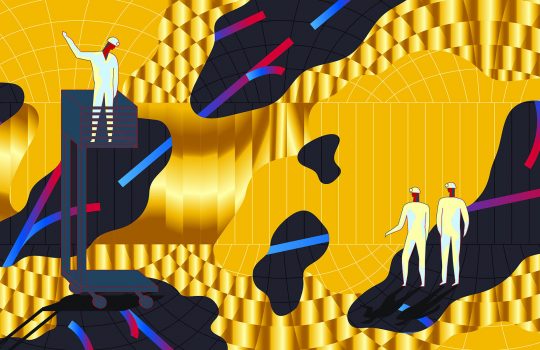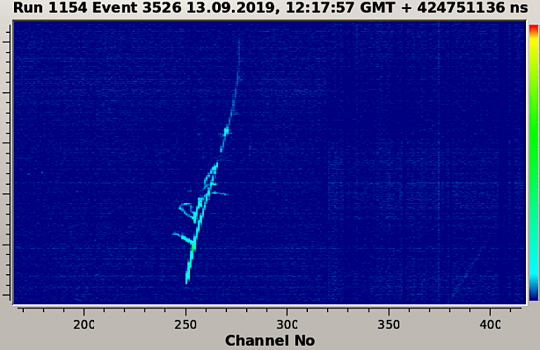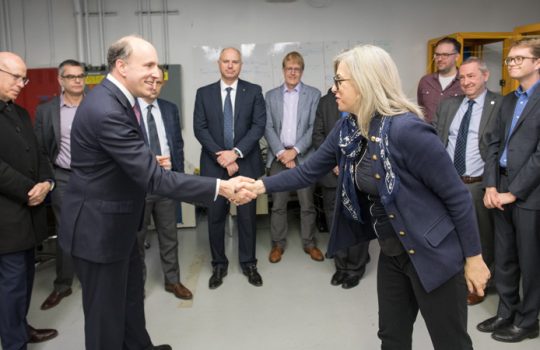DUNE scientists see particle tracks with dual-phase technology
Advances in subatomic physics heavily depend on ingenuity and technology. And when it comes to discovering the nature of some of the most elusive particles in the universe, neutrinos, scientists need the best and most sensitive detector technology possible. Scientists working at CERN have started tests of a new neutrino detector prototype, using a very promising technology called “dual phase.”




